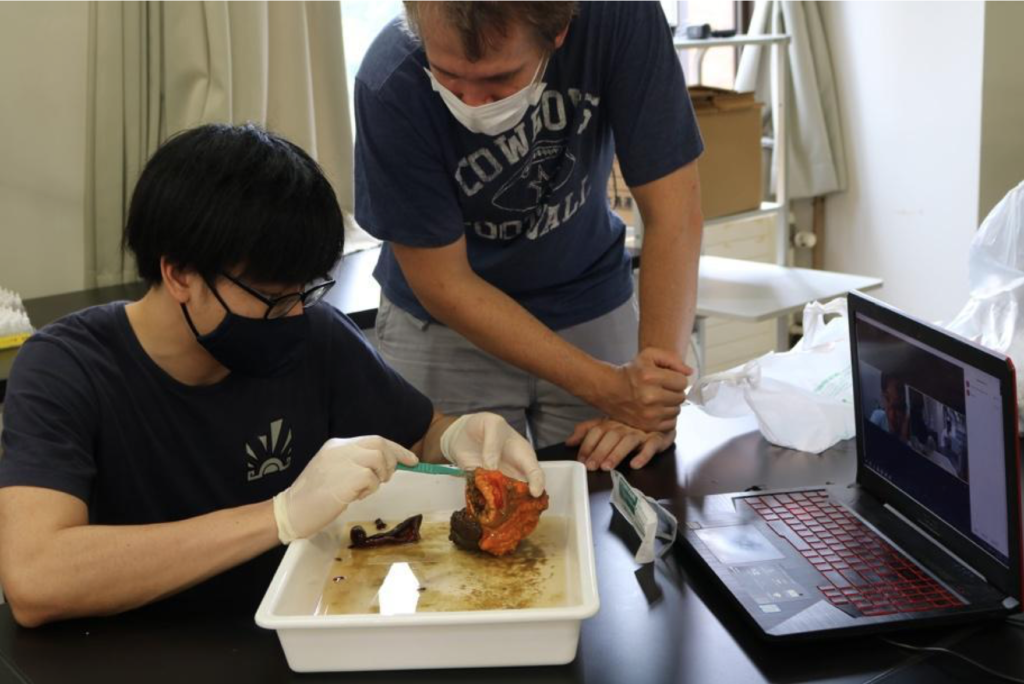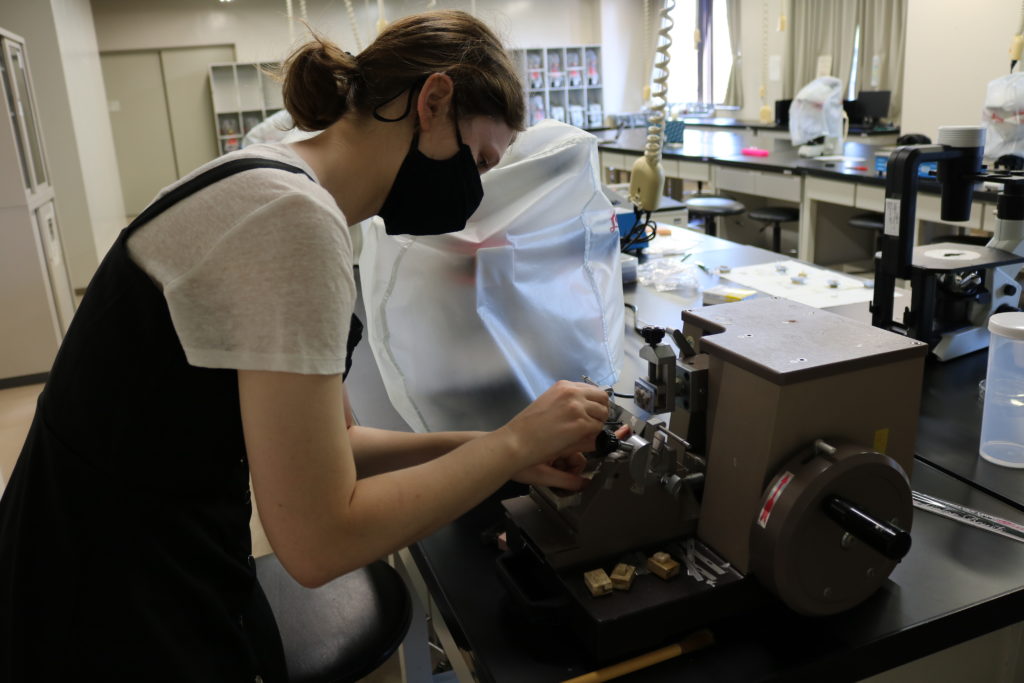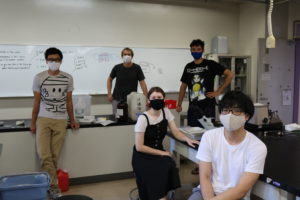HSI Report: “Fundamentals of Marine Pathology”
University News | September 09, 2020
Hokkaido Summer Institute (HSI) has always attracted students around the world with a compelling array of courses instructed by experts from across the world. However, HSI 2020 has a different flavor compared to the previous years, due to preventative measures taken against the COVID-19 pandemic. Regrettably, while external applicants were not able to take part in this year’s courses, Hokkaido University students were still able to participate in classes in person or online.
The course “Fundamentals of Marine Pathology” was a five-day course designed and instructed by Dr. Kevin Wakeman from the Institute for the Advancement of Higher Education, Hokkaido University. This course was geared towards students seeking to learn about diseases in marine organisms using contemporary methods such as histology and molecular biology.

Through video call, the online participant could observe how dissections are being conducted while receiving verbal explanations from both the instructor and a fellow student.
The course was originally intended to be held twice in two separate five-day courses: lecture and lab. However, some scheduling adjustments had to be made due to the pandemic and so Dr. Wakeman decided to push everything into one condensed five-day (5-6 hours each day) course consisting of lectures and lab activities from August 24th to 28th. Some major changes included the cancellation of the arrival of two guest instructors from New Zealand, and planned travel associated with the course was avoided (specimen observations took place within the campus laboratory).
“The visiting researchers and I initially planned to do this course in June. We planned to travel to parts of Hokkaido, as part of the course, to collect samples in the field and also examine fish markets. However, earlier in the year, travel restrictions and concerns over student and public health delayed the course and forced us to reconsider how to best introduce the course material to a group of students. Ultimately, the researchers from New Zealand were unable to make it to Japan. Fortunately, we were still able to get the samples for the activity here in Hokkaido University’s laboratory. I was actually quite pleased that we were able to hold this course in-person at all. The Faculty of Science was of great assistance in this regard and lent us their large student-laboratory during this time,” explained Dr. Wakeman.
For part of the course, 4 types of mollusks were observed including mussels, oysters, surf clams, and marine snails. Students were also able to dissect large tunicates. During these practical sessions, the students proceeded with practical steps in which they were trained to not just identify but also properly deal with varying organs for histology and molecular work. Patience and delicate hands, blended with curiosity, are the keys to master dissections.
For histological work, after the tissues were prepared and embedded in wax overnight, the tissue-blocks were sectioned into thin slices using a microtome. Wax-histology is something the students experience briefly as part of their undergraduate coursework; hence this part of the course is a great opportunity to test what they remember and hone their skills. This year’s small number of classroom participants allowed each student an extended time grasping the technique—at times, histology is just as much of an art as a science.

Students learn firsthand how to prepare and operate the microtome after learning the tricks (and hazards!).
For this particular course, there were four on-site participants and one online participant (a Hokkaido University student who is currently in Thailand); all were students from Hokkaido University’s Integrated Science program (ISP). Each of the students have an interest in the study of organismal biology.
“Here we can find specimens that we don’t usually work on in regular science classes. They are rare to find,” claimed one of the students.
The biggest challenge might have been dealing with online learning since the online course-taker generally requires more effort to gain the same level of insight compared to those who are learning in the class. The time-difference encourages both the online participants and people on-site, especially the instructor, to be more flexible in the entire learning process.
“It is challenging, considering this is the first time we are doing this marine pathology course, and to mix it with the online format, on top of that, was an experience for me. But, it is the world in which we currently live, and I find it to be great practice for similar classes this next semester and in the future,” said Dr. Wakeman.
HSI 2020 might have not been available for external candidates, but it will be opened next year with additional things to look forward to. With 145 courses already planned ahead, HSI 2021 has been designed to adapt to the upcoming situation. While the ideal learning format is to have on-site learning to let the students experience Hokkaido’s pleasant summer, HSI 2021 will also provide better remote and hybrid learning for future participants and guest researchers.
To receive information about HSI 2021, sign up for a reminder through the following link:
https://hokkaidosummerinstitute.oia.hokudai.ac.jp/E-Notices/
Written by Aprilia Agatha Gunawan

